Features
EGYPT: A PEOPLE'S REVOLUTION
Not a Crisis or a Coup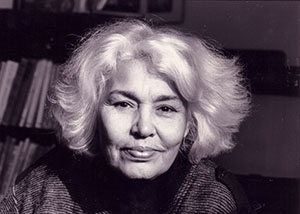
by Nawal El Saadawi, IslamiCommentary
Every revolution in history has had its counter-revolution. Most recently, internal and external forces allied, as they did in Egypt, to abort the January 2011 revolution.
But the Muslim Brotherhood failed to abort this latest revolution on June 30, 2013, and they will continue to fail because those who have rebelled against them have learned the lessons of the past. Their consciousness has deepened with organization and unity.
Thirty-four million youth, men, and women went out into the streets and squares. They were determined to topple the religious government, under the control of the Muslim Brotherhood, as well as stand up to all who supported the Brotherhood, at home and abroad .
MONSANTO FACES OPPOSITION IN PUERTO RICO
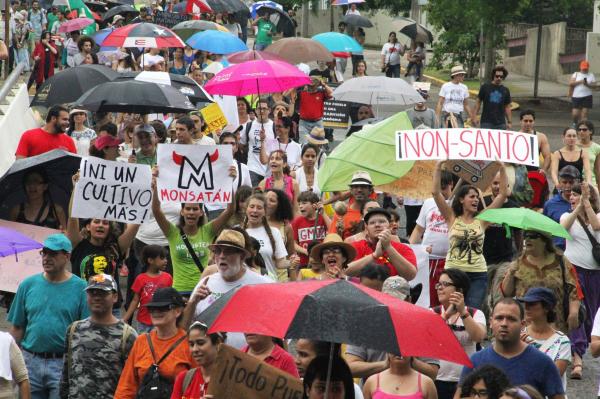
by Carmelo Ruiz Marrero, World War 4 Report
Agricultural biotech corporate giant Monsanto pretty much has had its way in Puerto Rico since it first set up seed breeding operations in the island in 1983. But the last few months have seen a hailstorm of bad publicity and protests against the corporation's local activities.
On June 11, Monsanto Caribe, the company's local affiliate, refused to testify at a Puerto Rico Senate hearing on proposed seed legislation, bill PS 624.
"Monsanto does not produce, sell [or] offer...basic or certified seed with the purpose of planting in Puerto Rico," argued company representative Eric Torres-Collazo in a letter to the Senate agriculture committee explaining the decision not to testify. Technically true, since all the seed this and other biotech companies produce in Puerto Rico is for export. But committee chair Ramón Ruiz-Nieves has not accepted Monsanto's argument, pointing out that the company receives substantial subsidies from the local agriculture department and it is registered with the PR government as a bona fide farmer. Ruiz-Nieves informed the press that he intends to summon Monsanto again.
ANARCHISM IN EGYPT
An Interview from Tahrir Square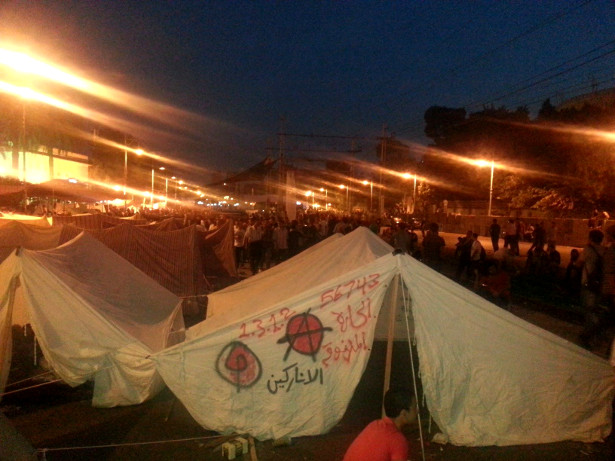
by Joshua Stephens, Waging Nonviolence
I met Mohammed Hassan Aazab earlier this year over tea at a table of young anarchists in downtown Cairo. The anniversary of the revolution had just passed with massive protests and the emergence of a Western-style black bloc that appeared to have little to do with anarchists in the city. At the time, much of the ongoing grassroots organizing was against sexual violence—in particular, the mob sexual assaults that have become synonymous with any large gathering in Tahrir. The trauma of such violence carried out against protesters was apparent in our conversation. In fact, Aazab told me that he was done with protests and politics, and had resigned himself to the dysfunction of day-to-day life in Egypt.
Then came June 30. Crowds reportedly as large as 33 million took to the streets to call for the Muslim Brotherhood to step down from power, just a year after Mohammed Morsi took office. In the pre-dawn moments of July 1, as Aazab's phone battery dwindled steadily, I reconnected with him to chat a bit about his return to resistance.
BRAZIL: PRIVATE TRANSIT, PUBLIC PROTESTS
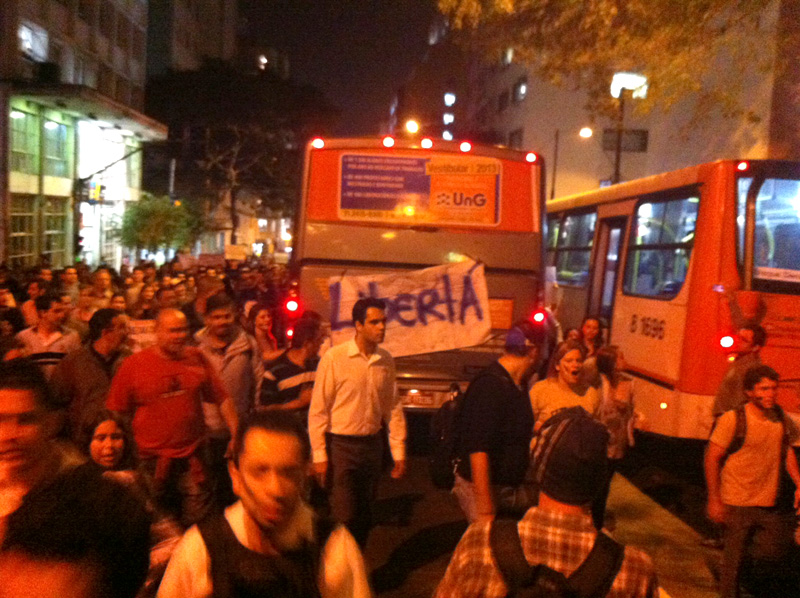 by Euan Gibb, Socialist Project
by Euan Gibb, Socialist Project
São Paulo has some of the worst traffic in the world. Workers' daily commutes can be over two hours—one way—without ever leaving the city. Rain or traffic accidents can easily increase a commute to over four hours. Streets become so congested during peak hours of traffic that the local news stations report on the length of kilometers of stopped cars and trucks on the highways entering the city. There are permanent signs mounted beside these highways with lights that can be turned on and off indicating that "traffic is stopped in front." São Paulo has the highest per capita density of private helicopters in the world. Those with serious money in this extremely rich and unequal city choose the option to literally fly over the traffic jams.
People traffic can be equally awful. Despite an extensive underground metro and many bus lines (with 60 kilometers of dedicated lanes, diesel, bio diesel, and electrified buses, double and even triple length articulated buses) in São Paulo, buses and subways fill to the point of internal pressure. Line-ups to get on the subway can be as long as two hours while buses that are filled beyond capacity roar past line-ups of passengers standing at the bus stop.
IS MEXICO FAILING TO PROTECT JOURNALISTS?
Anabel Hernández Thinks So, and Fears for Her Life
by Jason McGahan, Vice
Anabel Hernández is one of the most decorated journalists in Mexico, and currently reports for the weekly news magazine Proceso and the online magazine Reporte Indigo. She's been on the radar of the most powerful corrupt law enforcement officials in the country since at least 2008, when she published her first expose on Genaro García Luna, the head of Mexico's equivalent of the FBI and then-president Felipe Calderón's right-hand man in the drug war. She revealed he owned lavish homes and vast amounts of property that far exceeded what could be bought with the salary of a humble public servant. She followed that up, in 2010, with Los Senores del Narco, a 588-page history of the Mexican drug mafia that exposed, in exhaustive detail, the crimes of García Luna and his inner circle of corrupt officials. (That book is being translated into English by Verso Press and will be available in September under the title Narcoland: The Mexican Drug Lords and Their Godfathers.) Sources in the federal police warned her soon afterward that Mexico's top cop was plotting to have her murdered and make it look like an accident.
IN GUATEMALA, A LONG ROAD TO JUSTICE
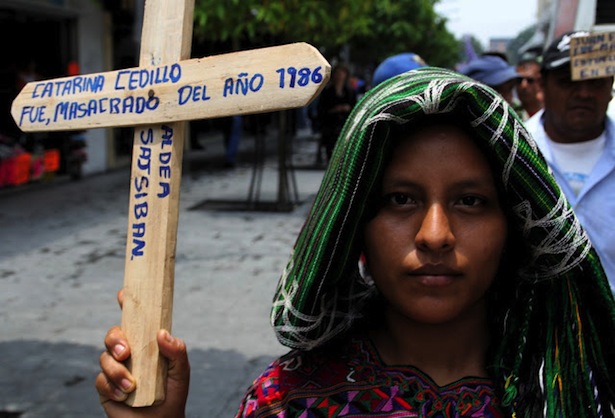 by Marta Molina, Waging Nonviolence
by Marta Molina, Waging Nonviolence
On May 20, Guatemala's Constitutional Court overturned the historic guilty verdict of the nation's former military dictator Efraín Ríos Montt, who had been convicted of committing genocide and crimes against humanity during his short reign from 1982 to 1983. The Constitutional Court's decision annulled Montt's 80-year prison sentence and ordered that the final weeks of the case be retried. At 86 years old, Ríos Montt was the first former head of state in Latin America to be sentenced for genocide by his own country.
In response, human rights organizations across Latin America organized actions protesting the sentence annulment, supporting the victims of genocide and condemning legal impunity. In Guatemala, an estimated 5,000 people marched through the capital on May 24. Simultaneous actions occurred in front of the Guatemalan embassies in Buenos Aires, Argentina; Mexico City, Mexico; Managua, Nicaragua; Lima, Peru; Tegucigalpa and San Pedro Sula in Honduras. Additional protests occurred in El Salvador and Costa Rica.
PERU BACKSLIDES ON INDIGENOUS RIGHTS
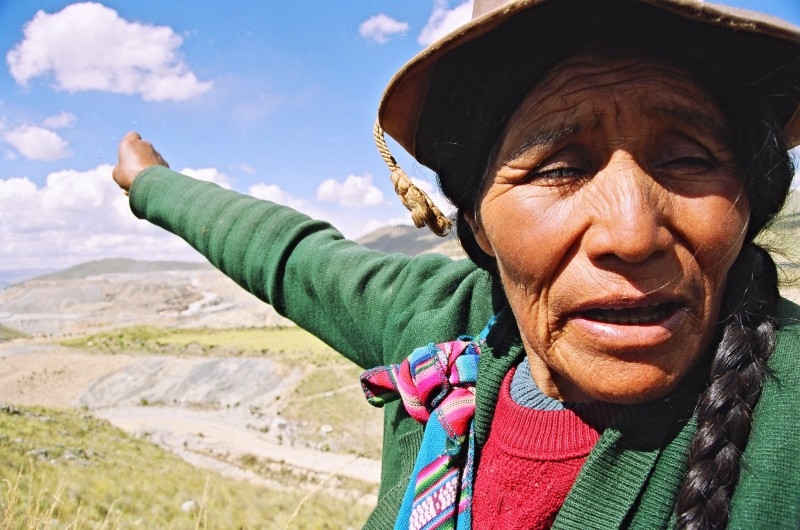 by Emily Greenspan, Oxfam America
by Emily Greenspan, Oxfam America
Recent statements from the Peruvian government do not bode well for implementation of Peru's new Indigenous Peoples Consultation Law (Consultation Law). The landmark law, passed in 2011 and now being implemented, requires the Peruvian government to consult indigenous peoples affected directly by development policies and projects such as oil drilling, mining, roads and forestry. Consultations must aim to achieve agreement or consent. If implemented effectively, the law could help reduce the number of violent conflicts that frequently emerge in the country’s oil and mining industries.
However, last month Peru's Vice Minister of Culture Ivan Lanegra—responsible for overseeing implementation of Peru's Consultation Law—resigned in protest following Executive branch declarations that highland (or campesina) communities do not qualify as indigenous peoples. At the same time, the Peruvian government announced that it will proceed with 14 mining projects located in the Peruvian highlands without prior consultation with neighboring communities.
TURKISH HOPES FOR A NEW BEGINNING
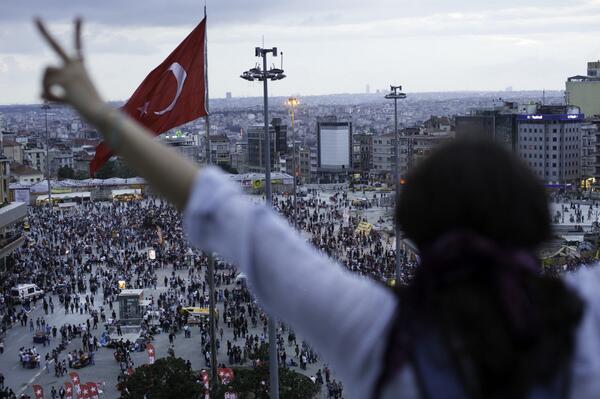 by John McSweeney, openDemocracy
by John McSweeney, openDemocracy
Over the past few days Turkey has been gripped by large-scale social unrest not seen since the disastrous economic crisis of 2000-2001. The protests started on the 28 May in Istanbul when a collection of environmentalists and local activists occupied Gezi Park against the uprooting of one of the few major green parks in the sprawling urban metropolis that is Istanbul—a city of over 13 million people—to make way for a shopping mall.
However, what started out as a protest by a small number of people turned into a nation-wide crisis after images began to circulate on social media sites of the repressive approach the police were taking to the protests. The pictures of fully armoured riot police spraying tear gas and pepper spray onto unarmed and peaceful protestors, many of them women, provoked widespread indignation and disgust that resulted in a cacophony of "that's enough" across Twitter and elsewhere.















Recent Updates
2 days 3 hours ago
3 days 3 hours ago
3 days 3 hours ago
3 days 4 hours ago
5 days 5 hours ago
5 days 5 hours ago
5 days 6 hours ago
6 days 6 hours ago
6 days 7 hours ago
6 days 8 hours ago